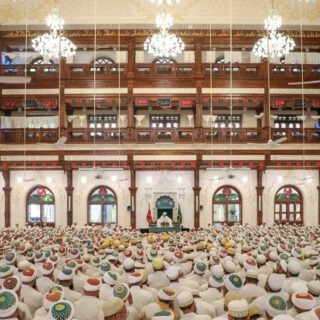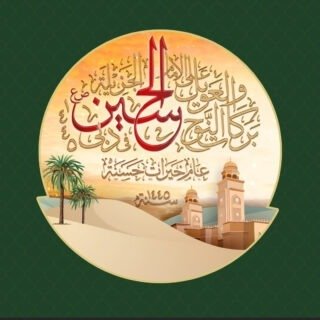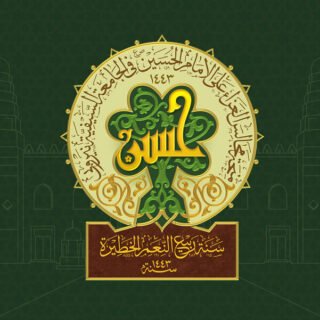21st ShehrAllah 1441 H
In Surah al-Teen, Allah Taala swears by four things: teen (fig), zaitun (olive), tur sineen (Mount Sinai) and balad ameen (Makkah Mukarrama). A range of fruits are mentioned in the Quran, with their varying shapes, size and textures an indication of Allah’s divine wisdom.
Maualana Badrul Jamalil RA states that figs are fruits which can be eaten in their entirety, while olives can be eaten save the seed and the peels of pomegranates cannot be consumed.
Figs grow directly from the stems of its tree, while other fruits grow only after leaves have grown. Fig trees are one of the longest living plants and can survive a range of circumstances, resulting in its fruit being able to cure a range of illnesses. The benefits of olive oil are well established.
Tur sinin, known as Mount Sinai upon which Musa Nabi AS did munajat with Allah, is near St. Catherine’s Monastery in Egypt. Makkah Mukarrama is known as balad amin, because all creation is granted sanctuary there.
After these affirmations, Allah states that we have created man in the most perfect form. Imam Ahmed al-Mastur SA that each organ and limb of the human body is in the most perfect of proportions. Syedna Mohammed Burhanuddin RA states that man is the most distinct of all creation, his head is held upright, facing ahead, indicating his journey to the heavens.
Our forefathers had the habit of reciting Surah al-Teen whenever something was misplaced.
The most repeated ayah in the Quran is from Surah al-Rahman: it features 31 times.
Lailatul Qadr is specifically mentioned in the Quran, with one surah being named Surah al-Qadr. In this surah, Allah states ‘Do you know what Lailatul Qadr is? This is both an affirmative as well as exclamatory statement. Its five ayahs, mention Lailatul Qadr three times signifying a night that we all eagerly anticipate.
In the first ayah, Allah states, ‘Indeed we have revealed the Quran in Lailatul Qadr’, both the silent and the speaking. Syedna Qadi Noman RA states that the sins of the one who spends Lailatul Qadr in ibadat will be forgiven.
Rasul Allah SA gave multiple indications for the date of Lailatul Qadr. Once he said, ‘seek it out in the final third of Shahr Allah’. In another instance he said, ‘it is when I will be praying namaz and the tip of my nose will be immersed in the wet earth. All those who truly wanted to know when Lailatul Qadr was would just have to observe Rasul Allah’s SA actions. Similarly, an individual from the Juhaina tribe told Rasul Allah SA that he resides far from Madina and requested him to inform him of one night in which he could come to his presence and do ibadat. Rasul Allah SA whispered in his ear the date, and when it came the Juhaini came with his family to Rasul Allah SA and spent the night in ibadat. All those who wished to know when Lailatul Qadr was needed to mark the date he came to Madina.
Every day during Shehrullah, in the duas we recite following fajr and zohar namaz, we pray to the Almightly to grant us the strength and tawfiq to observe Lailatul Qadr in the best possible manner. We pray to Him make us among those who are comfortable with Lailatul Qadr and through understanding it be guided towards Sirat-e-Mustaqeem. We beseech Him to divinely inspire us to observe Lailatul Qadr and seek from Him the livelihood of spending the entire night in ibadat . Ultimately, we implore Him to include us by virtue of this blessed night among those who have been set free from hellfire.
We begin our preparations for the next Lailatul Qadr from fajr namaz on the 23rd of Shahr Allah, entreating Him to grace us with ibadat in Lailatul Qadr the next year. As the months turned to days and days to hours may we all take out Nazrul Maqam AS so that we are all able to maximize the barakat and blessings that descend upon us during this auspicious night, not neglecting even a second. May we prepare ourselves both mentally and physically to gather the imminent downpour of blessings from the heavens of our Maula, Syedna Aali Qadr Mufaddal Saifuddin TUS. May we spent Lailatul Qadr after Lailatul Qadr in his presence.








